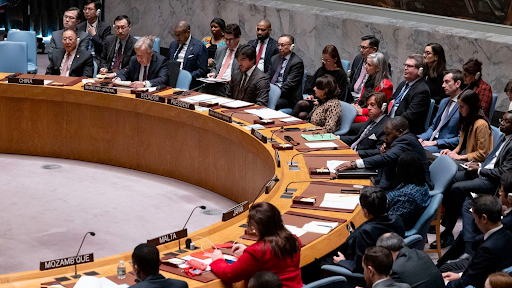The UN Security Council has once again deferred a vote on a resolution urging increased humanitarian aid access to Gaza following a day of rigorous negotiations. The deliberations highlight the challenges in garnering consensus on addressing the pressing humanitarian crisis in the region.
A UN-backed report reveals alarming statistics, stating that more than 576,000 Palestinians in Gaza, roughly a quarter of the population, are on the brink of “catastrophic hunger and starvation.” The dire situation underscores the urgent need for international intervention to alleviate the suffering of the affected population.
In the midst of these diplomatic efforts, Israel persists in its bombardment of Gaza, resulting in additional casualties reported in Rafah, Khan Younis, and the Nuseirat refugee camp. The ongoing violence exacerbates the already precarious conditions faced by the people of Gaza, adding urgency to the calls for humanitarian aid.
The toll of the conflict continues to mount, with Gaza’s Government Media Office reporting that at least 20,000 Palestinians have been killed in Israeli attacks since October 7. This staggering figure emphasizes the severity of the crisis and the significant loss of life within the Palestinian territories. Concurrently, the death toll from Hamas’s attacks on Israel stands at nearly 1,140, underscoring the devastating impact on both sides of the conflict.
The diplomatic challenges in the UN Security Council reflect the complexity of finding a collective solution to address the immediate humanitarian needs in Gaza. The international community’s ability to unite and deliver aid is crucial in preventing further deterioration of the humanitarian situation and mitigating the suffering of the affected population.
As negotiations persist, the situation on the ground remains dire, necessitating swift and effective international action to provide much-needed relief to the people of Gaza. The postponement of the vote underscores the difficulties in achieving consensus, heightening concerns about the prolonged suffering of the civilian population and the urgency of finding a resolution to the crisis.

